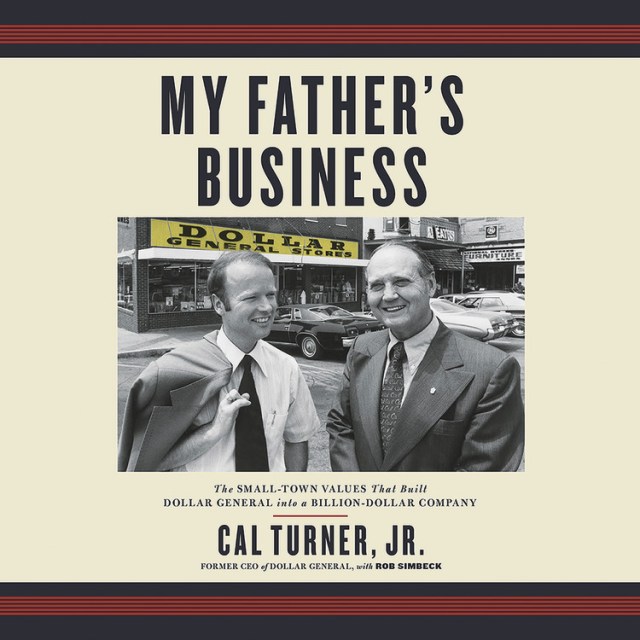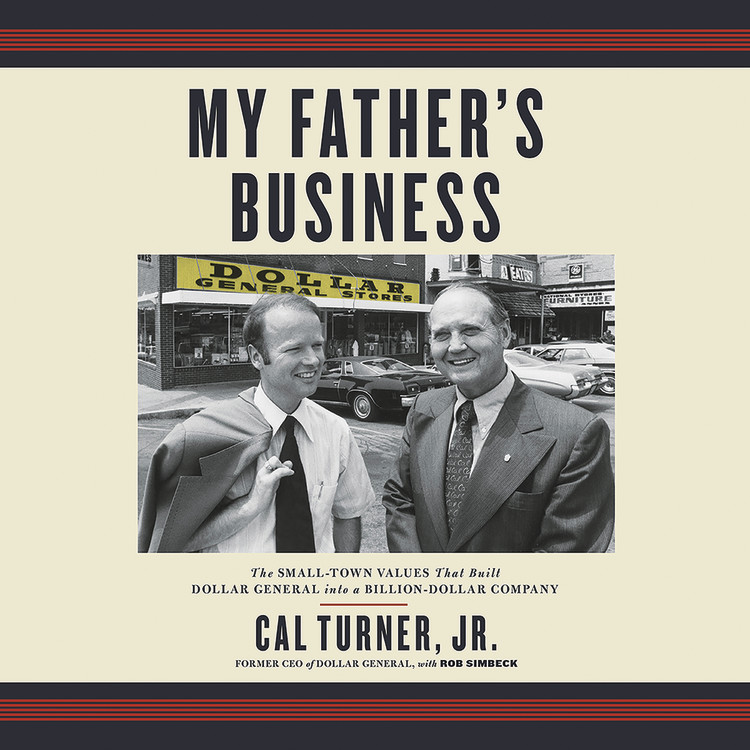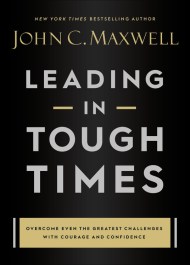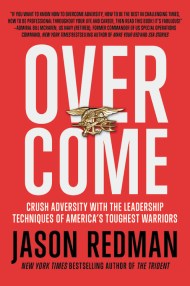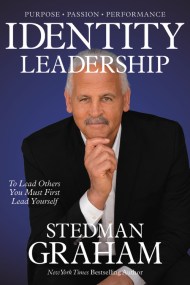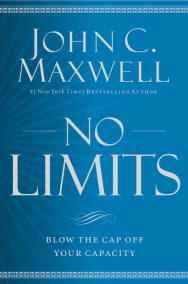By clicking “Accept,” you agree to the use of cookies and similar technologies on your device as set forth in our Cookie Policy and our Privacy Policy. Please note that certain cookies are essential for this website to function properly and do not require user consent to be deployed.
My Father’s Business
The Small-Town Values That Built Dollar General into a Billion-Dollar Company
Contributors
With Rob Simbeck
Formats and Prices
- On Sale
- May 22, 2018
- Publisher
- Hachette Audio
- ISBN-13
- 9781549168666
Format
Format:
- Audiobook Download (Unabridged)
- Trade Paperback $18.99 $24.99 CAD
This item is a preorder. Your payment method will be charged immediately, and the product is expected to ship on or around May 22, 2018. This date is subject to change due to shipping delays beyond our control.
Buy from Other Retailers:
Longtime Dollar General CEO Cal Turner, Jr. shares his extraordinary life as heir to the company founded by his father, Cal Turner, Sr., and his grandfather, a dirt farmer turned Depression-era entrepreneur. Cal’s narrative is at its heart a father-son story, from his childhood in Scottsville, Kentucky, where business and family were one, to the triumph of reaching the Fortune 300 — at the cost of risking that very father/son relationship. Cal shares how the small-town values with which he was raised helped him guide Dollar General from family enterprise to national powerhouse.
Chronicling three generations of a successful family with very different leadership styles, Cal Jr. shares a wealth of wisdom from a lifetime on the entrepreneurial front lines. He shows how his grandfather turned a third-grade education into an asset for success. He reveals how his driven father hatched the game-changing dollar price point strategy and why it worked. And he explains how he found his own leadership style when he took his place at the helm — values-based, people-oriented, and pragmatic. Cal’s story provides a riveting look at the family love and drama behind Dollar General’s spectacular rise, pays homage to the working-class people whose no-frills needs helped determine its rock-bottom prices, and shares the life and lessons of one of America’s most compelling business leaders.
-
Mr. Turner writes with touching candor about the challenges of sustaining a family business.Wall Street Journal
-
An inspiring story...if you are an ambitious businessman or entrepreneur, My Father's Business will show you the future direction....should be a required read for the teachers and students of business.The Washington Book Review
-
[This] well-written, honest book...is recommended for the general reader, business owners, entrepreneurs, job changers, and business-school students who want to understand the thinking that shaped the company's growth and fueled its problems.Booklist
-
My Father's Business is the story of what it took to build Dollar General into a national retail chain from its rural, Kentucky roots and will encourage anyone with a dream of building a business.Doug McMillon, president and CEO, Walmart
-
My Father's Business ought to be required reading in any business school . . . . a great book!Peter Handal, President and CEO, Dale Carnegie Training
-
A fascinating glimpse into the philosophy and logistics of the dollar-store business model...Chapter16.org
-
A revealing and colorful book . . . Cal Jr.'s openness about the trials and tribulations both within the family and the company itself, as well as his personal reflection in retirement, is something we can all learn from and is sure to help us be more honest in our own self-assessments.Senator Bob Corker
-
My Father's Business is a MUST-READ for an aspiring young entrepreneur and an enjoyable read for anyone.Dr. Thomas Frist, co-founder, Hospital Corporation of America
-
A fantastic book, for new entrepreneurs and CEOs alike, and it will inspire everyone who wants to integrate personal aspirations, family values, and best business practices.Rev. Dr. Becca Stevens, founder and president of Thistle Farms
-
The story of Dollar General is an example of what makes our country so great.George Roberts, co-founder and co-chair, KKR
-
This is more than the tale of Dollar General . . . . It is a story of family turmoil as well as wild success.Senator Lamar Alexander
-
I highly recommend this book as an insight into what is really important in business.Michael W. Smith, singer/songwriter
Newsletter Signup
By clicking ‘Sign Up,’ I acknowledge that I have read and agree to Hachette Book Group’s Privacy Policy and Terms of Use
